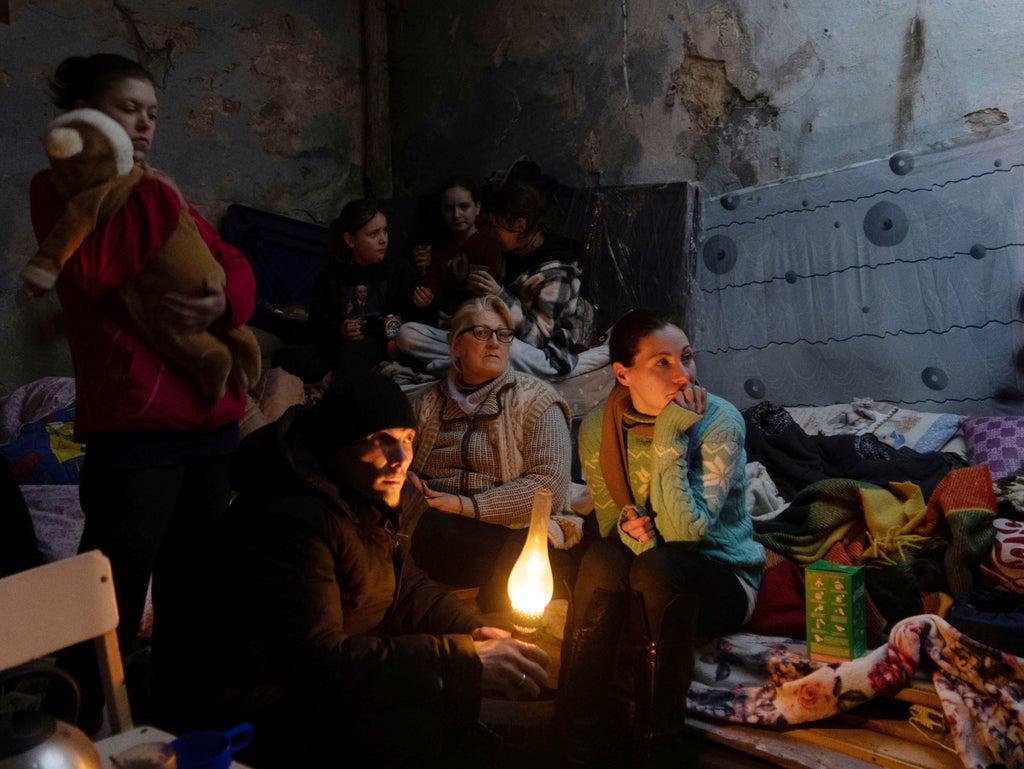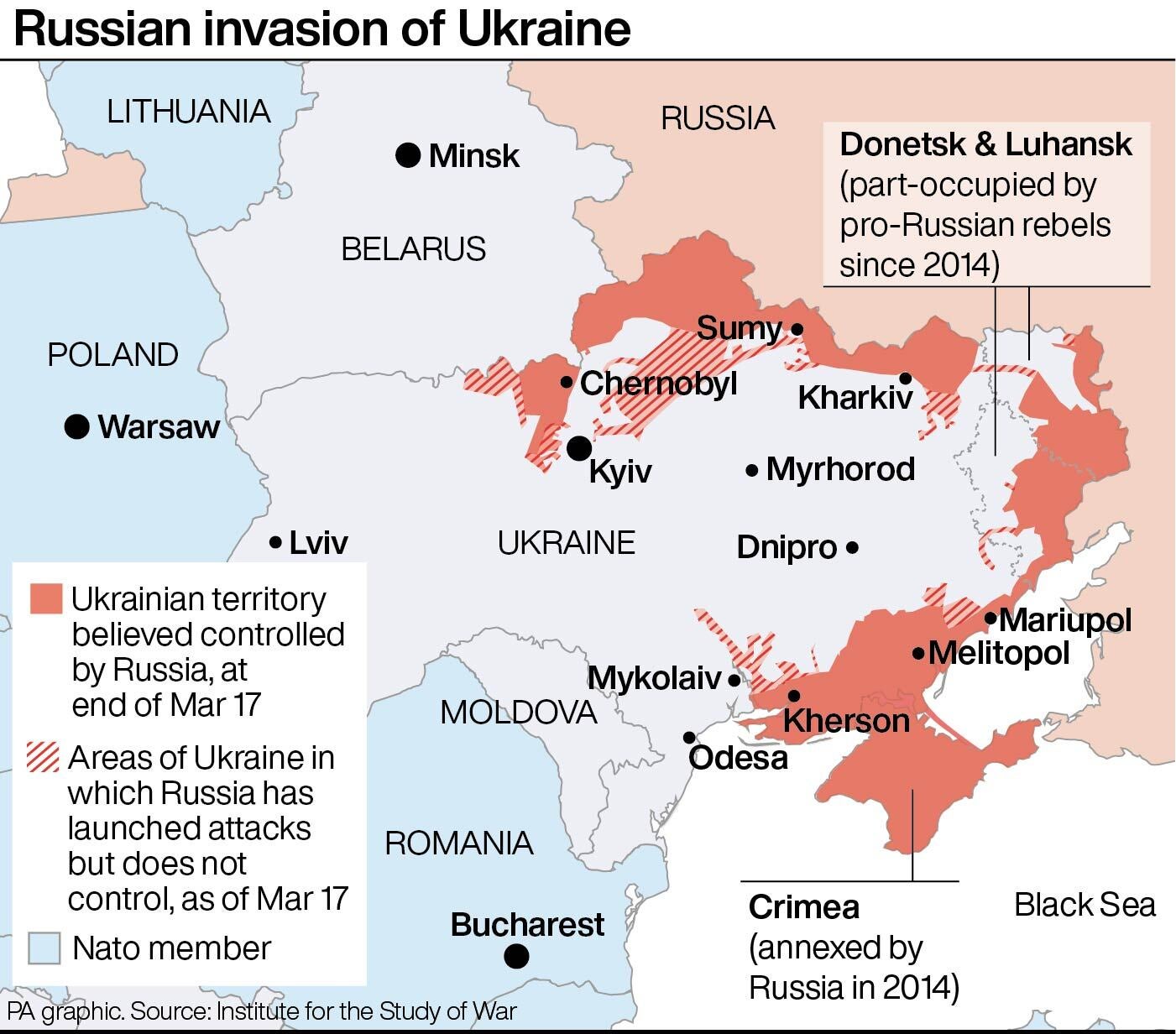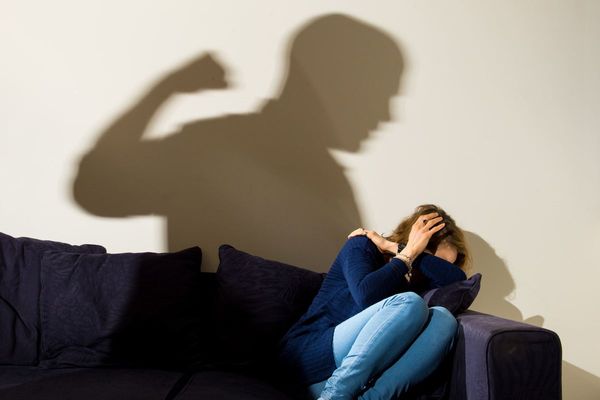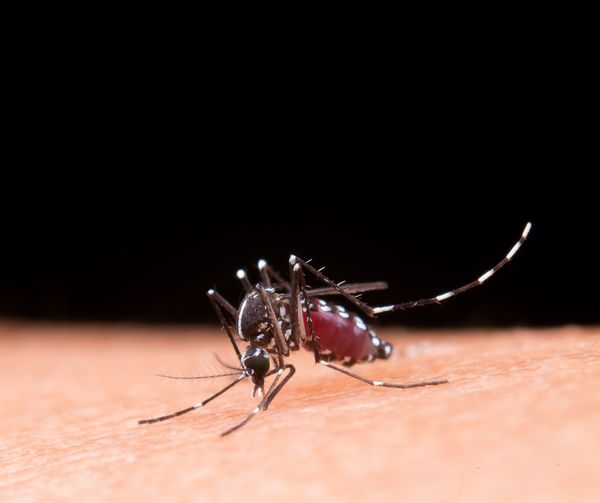
A charity worker in the besieged city of Mariupol has told how the elderly are dying of strokes due to the stress of war while trapped in their homes and no one is removing the bodies.
Elsewhere, in the disputed region of Donetsk, a de-mining charity says Russian troops have forcibly enlisted Ukrainian staff to fight against their own people.
At least 2,357 people have been killed in Mariupol, according to official figures, though the true toll may be much higher. And as water, electricity, heating and food have been cut off or run out, millions more are at risk of dying from hunger, thirst or a lack of vital medication.
A supervisor for the Halo Trust, which clears landmines in the country and elsewhere, described how before he fled the city, he witnessed horrors including people being killed and houses being burnt to a frazzle.
“The situation is horrendous,” he told colleagues. “We went through hell. They even shelled my house. I can’t remember a day or even a couple of hours when they weren’t shelling or conducting air strikes.
“You couldn’t call anyone simply to inform them we were relatively OK, despite living through the terrifying shelling day after day, because there was no electricity to charge our phones.
“There’s no water. Even the well was hit by shelling.
“There was no heating so we stayed in basement shelters wearing warm clothes.”

In his account, read on BBC Radio 4 by James Cowan, the trust’s chief executive, the worker continued: “I saw many people I knew die.
“A man who shared water with everyone from his well was killed, together with his whole family. Women were panicking; children were crying.
“The elderly are dying in their apartments from strokes caused by this war. No one takes them out of their apartments.”
The employee was forced to leave his parents behind when he fled the city in a convoy on Wednesday as they refused to go.
He added: “Our colleagues saw another Halo colleague on the way who also managed to flee by vehicle. Her house was hit by Grad rockets and it burnt down.
“We drove through the city centre together. The city is completely unrecognisable. It’s totally ruined. All the high-rise buildings simply do not exist any more. They were blown up and have large holes in them now. Half the buildings are on fire.
“There are huge craters from the aerial bombardment on the roads.
The numbers you see on the news don’t really reflect even 30 per cent of the truth. Many more civilians have died, and having spoken to the locals, I feel the numbers may reach 20,000 people
“We also saw a shell hit a window in an apartment block. Since the firefighters can’t get there, all the upper floors simply burn out and all that’s left is the black remains of the building or really just a box.”
Mariupol City Council said on Tuesday that around 2,500 residents had died as a result of Russian aggression. The city’s population was estimated last year at around 432,000.
“Halo heard from another colleague who suffered a heart attack at the beginning of the siege, and when asked if he would flee via a humanitarian corridor, he said he couldn’t leave his wife who had difficulty walking,” the supervisor wrote.
“We keep trying to survive.
“I can’t find the words to find the horror, the atmosphere, the darkness that reigned over the city. Or to be more precise, the ruins of the city.
“The numbers you see on the news don’t really reflect even 30 per cent of the truth. Many more civilians have died, and having spoken to the locals, I feel the numbers may reach 20,000 people.”
Mr Cowan said the indiscriminate use of force against civilians left him in no doubt these were war crimes.
The trust said staff were having to move at such short notice that it was difficult to gain an accurate picture of where they were.
Most staff had been in Kramatorsk in Donetsk near the border or in the countryside near the line of control, Mr Cowan said.
In one village occupied by Russian troops, some staff were interrogated aggressively and forcibly enlisted into the local militia to fight against their own people, he said.
“It’s an extremely difficult time yet Kramatorsk remains free and in Ukrainian hands.”
The Independent has a proud history of campaigning for the rights of the most vulnerable, and we first ran our Refugees Welcome campaign during the war in Syria in 2015.
Now, as we renew our campaign and launch this petition in the wake of the unfolding Ukrainian crisis, we are calling on the government to go further and faster to ensure help is delivered.
To find out more about our Refugees Welcome campaign, click here. To sign the petition click here. If you would like to donate then please click here for our GoFundMe page.







